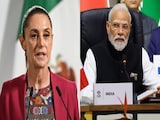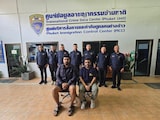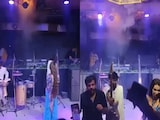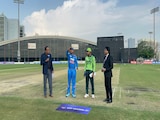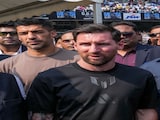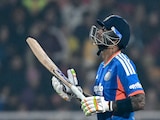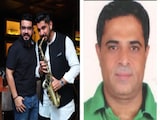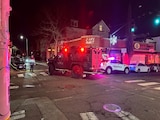In a recent column on this website, my friend and senior journalist, Javed Ansari, expressed the hope that the Rashtriya Swayamseva Sangh (RSS), "the ideological fountainhead of the Sangh Organization", is "ideally suited" to "rein in the hotheads in the government and also among its ideological fellow travelers like the VHP and the Bajrang Dal".
His hope was expressed in the context of the recent meetings of the RSS chief, Mohan Bhagwat, with five prominent members of the Muslim community. Two days later, Bhagwat went to a mosque in New Delhi to meet with the chief of the All-India-Imam Organization, Dr Imam Umer Ahmed Ilyasi. He also interacted with students of a madrasa. Ilyasi was sufficiently overwhelmed by this gesture to call Bhagwat the 'Rastra Pita', the father of the nation, a label hitherto used only for Mahatma Gandhi.
Mohan Bhagwat visited a mosque and a Madrasa in Delhi.
The RSS explained that these meeting were part of the 'samvad' or dialogue that the organization has always sought to establish between different religious communities. Civilized samvad has been one of our great traditions, and we need to revive it. If the RSS feels that a dialogue will help stem the current systemic demonization and alienation of the minorities, it is a good thing. Such an overture was long overdue, but is it too late, or largely symbolic, or even efficacious, given the changes that have already been wrought in the last eight years?
It is here that, even as I wish to believe in the optimism expressed by Javed Ansari, I have my doubts. The primary reason is that the RSS is no longer in control of the extreme right-wing forces it has itself empowered in the last few years.
The RSS, notwithstanding its misguided support for the unachievable, impractical and outdated concept of a Hindu Rashtra, has to be assessed in perspective. Its avowed purpose has been of uniting and strengthening the Hindu community, which, in itself, cannot be faulted. It also stands for robust service in the interests of the nation in moments of crisis. During the Partition and thereafter, RSS cadres contributed to the rehabilitation of Hindu refugees, leading the future President of the Republic, Dr Zakir Hussain, to say in 1949: "The allegations against the RSS of violence and hatred against Muslims are wholly false. Muslims should learn the lesson of mutual love, cooperation and organization from RSS".
In 1962, the RSS contributed actively to the war effort against China. This impressed Prime Minister Nehru, who invited the RSS to field a contingent of Swayamsevak in the 1963 Republic Day Parade in New Delhi. The RSS also distinguished itself in assisting Prime Minister Lal Bahadur Shastri during the 1965 war with Pakistan. Shastri invited the then RSS chief, MS Golwalkar, to an all-party meet. In the 1971 war with Pakistan, RSS volunteers were the first to donate blood and help the army to dig trenches. Field Marshall Carisppa paid a glowing tribute to these efforts: "RSS is my heart's work...The country is standing in need of your services."
When Indira Gandhi imposed the Emergency in 1975, RSS cadres played a significant role in clandestinely working for the restoration of democracy. Jayaprakash Narayan, earlier a staunch critic of the RSS, acknowledged, "RSS is a revolutionary organization. No other organization in the country comes anywhere near it. It alone has the capacity to transform society and casteism, and wipe the tears from the eyes of the poor."
But the RSS is no longer what it used to be. It has allowed itself to be taken over by lumpen elements which, through their action and speech, are becoming clones of the same condemnable Islamic fundamentalism they want to fight. These elements have over the last few years acquired a brash new autonomy, numerical strength, political heft and confidence, and are in no mood to be 'reigned in', as Javed thinks they could be.
The Bajrang Dal was formed on October 1, 1984, as a militant wing of the Sangh associate, the Vishva Hindu Parishad. Today it has reportedly 2500 'akhadas', which are nurseries of fanaticism, prone to mindless violence and scant regard of the rule of law. The Dal is one of the fastest growing organizations of the Sangh Parivar, with a membership of millions and a presence in almost every district of India.
Along with affiliates like the Shri Ram Sena, it does not believe in dialogue, celebrates the murders of those opposed to it like rationalists Professor MM Kalburgi and Narendra Dabholkar, and journalist Gauri Lankesh, blatantly publicizes videos of the lynching of a Muslim on suspicion of killing cattle, justifies the flogging of the Dalits in Una for skinning a cow, attacks with impunity women for not conforming to patriarchal notions of 'Hindu values', mindlessly conflates religion with patriotism, celebrates the demolition of the Babri Masjid as 'Shourya Divas', and is animated with a blind hatred for minorities in general and Muslims in particular.
Paul R Brass, the Professor Emeritus of Political Science at the University of Washington, has described the Bajrang Dal as the equivalent of Nazi Germany's Sturmabteilung, Hitler's para-military wing. Far-sighted BJP leaders had seen this coming. Atal Bihari Vajpayee, as Prime Minister, had said publicly that the Bajrang Dal only "embarrassed the BJP", and asked the BJP to "rein them in". Javed Ansari is clinging to the same hope. But is this anymore possible?
From the beginning, the BJP-RSS took a position of strategic ambivalence to the rise of such groups. Such an approach enabled them to reap short-term political dividends, while allowing them to ostensibly distance themselves from outrageously illegal actions. But in reality, the party's conspicuous silence or overt encouragement only served to further entrench such elements. Under the protective umbrella of political power, today they have acquired a ground-level dominance and become a law unto themselves, capable of posing a challenge to anyone who dares to rein them in, including the BJP-RSS leadership. In fact, an important leader of the Hindu Yuva Vahini, Yogi Adityanath's private army, akin to the Bajrang Dal, reportedly said that "in future, we may not need the BJP."
When you play with fire, you cannot always be sure that you can 'rein in' the conflagration. The genie is out of the bottle, and I'm afraid it is not going to be easy to put it back again, notwithstanding the intentions of Bhagwat-ji or the optimism of Javed Ansari.
Pavan K. Varma is author, diplomat and former member of parliament (Rajya Sabha).
Disclaimer: These are the personal opinions of the author.
